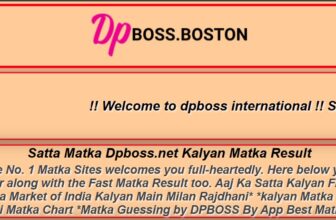
In today’s music industry, especially in rap, authenticity and storytelling are more than just buzzwords—they’re essential components of success. For aspiring rappers, standing out in a crowded field requires more than just catchy beats and sharp lyrics; it demands a compelling narrative that resonates with listeners. In this article, we’ll explore how you can leverage storytelling and authenticity to break into the music industry as a rapper and make a lasting impact.
Why Storytelling Matters in Rap
At its core, rap is a genre rooted in storytelling. From its early days in the Bronx to its global dominance today, rap has always been a medium for expressing personal experiences, struggles, and triumphs. The most iconic rappers—Tupac Shakur, Nas, Kendrick Lamar, and J. Cole, to name a few—are revered not just for their lyrical ability but for their ability to weave powerful, relatable stories into their music.
Storytelling in rap goes beyond recounting events; it’s about creating a connection with the audience. Listeners want to feel your joy, pain, anger, and hope. A great story can turn a casual listener into a loyal fan. As an aspiring rapper, learning to master the art of storytelling will set you apart in an industry that often values surface-level appeal.
What Does Authenticity Mean in Rap?
Authenticity in rap means being true to yourself and your experiences. In a genre where credibility is paramount, fans can quickly spot when an artist is pretending to be something they’re not. Authenticity doesn’t mean you have to come from a specific background or follow a particular narrative—it means embracing your unique story and telling it honestly.
For instance, not every rapper needs to have a hard-knock life story to succeed. Artists like Childish Gambino and Logic have shown that sharing their personal struggles, even if they differ from traditional hip-hop narratives, can still resonate with fans. Authenticity allows you to connect deeply with your audience, creating music that feels real and meaningful.
How to Incorporate Storytelling into Your Rap
Here are some actionable tips to help you incorporate storytelling into your music:
- Reflect on Your Experiences: Start by writing about your life—your upbringing, challenges, victories, and dreams. Think about the moments that have shaped you and how they might resonate with others.
- Create Relatable Themes: While your story is unique, find universal themes that listeners can connect with, such as love, loss, ambition, or identity.
- Use Vivid Imagery: The best stories paint pictures in the listener’s mind. Use descriptive language and metaphors to make your lyrics come alive.
- Structure Your Story: Treat your rap like a short film. Have a beginning, middle, and end to give your songs a sense of progression and resolution.
- Experiment with Perspectives: Don’t be afraid to write from someone else’s perspective or explore different angles of a story. This adds depth and creativity to your work.
- Draw Inspiration from Real Life: Pay attention to the world around you—conversations, news stories, and personal interactions can all serve as inspiration for your songs.
The Power of Vulnerability
Being authentic often means being vulnerable, and vulnerability can be a powerful tool in your music. Sharing your fears, insecurities, and failures shows your humanity and makes your music more relatable. Consider how artists like Kanye West opened up about mental health in “Ghost Town” or how Eminem shared his struggles with addiction and family in tracks like “Cleanin’ Out My Closet.”
When you’re honest about your emotions, you create a safe space for listeners who might be going through similar experiences. Vulnerability isn’t a weakness—it’s a strength that can foster a deep connection with your audience.
Balancing Authenticity with Marketability
While authenticity is crucial, the reality is that the music industry is also a business. To succeed, you’ll need to find a balance between staying true to yourself and creating music that appeals to a broader audience. This doesn’t mean compromising your values but understanding the importance of presentation.
For instance, crafting a catchy hook or incorporating popular production styles can make your music more accessible without diluting your message. Artists like Kendrick Lamar have mastered this balance, creating chart-topping hits like “HUMBLE.” while maintaining lyrical depth and authenticity.
Case Studies: Learning from Successful Rappers
Let’s look at a few examples of rappers who have built careers on storytelling and authenticity:
- J. Cole: J. Cole’s music often feels like a diary. Albums like “2014 Forest Hills Drive” delve into his upbringing, struggles, and personal growth, resonating with fans who see themselves in his lyrics.
- Kendrick Lamar: Kendrick’s “good kid, m.A.A.d city” is a masterclass in storytelling, chronicling his experiences growing up in Compton. His ability to blend personal narratives with larger social issues has cemented his status as one of rap’s greats.
- Cardi B: Cardi B’s rise to fame is a testament to the power of authenticity. From her candid social media posts to her unapologetic lyrics, she has built a career on being true to herself.
Practical Tips for Aspiring Rappers
- Practice Freestyling: Freestyling can help you develop your storytelling skills by forcing you to think on your feet and create narratives in real time.
- Write Regularly: Treat songwriting as a daily habit. The more you write, the better you’ll become at crafting compelling stories.
- Get Feedback: Share your music with trusted friends, mentors, or online communities to refine your storytelling and delivery.
- Study the Greats: Analyze the lyrics of successful rappers to understand how they structure their stories and engage their audience.
Conclusion
Breaking into the music industry as a rapper isn’t just about having a good beat or clever punchlines—it’s about connecting with your audience on a deeper level. By mastering storytelling and embracing authenticity, you can carve out a unique space for yourself in the industry. Remember, your story is your superpower. Own it, share it, and watch it resonate with listeners around the world.
If you stay true to yourself and perfect your craft, the music industry won’t just let you in—it’ll embrace you.







